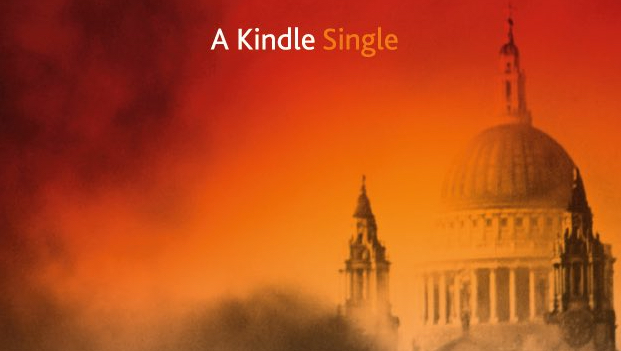
Announcing “Churchill and the Avoidable War”
The Avoidable War
Churchill and the Avoidable War will cost you the price of a cup of coffee. You can read it in a couple of nights. You may then decide if Churchill was right that the Second World War could have been prevented. Click here for your copy.
Churchill called it “The Unnecessary War…. If the Allies had resisted Hitler strongly in his early stages…he would have been forced to recoil, and a chance would have been given to the sane elements in German life.”
The Second World War was the defining event of our age—the climactic clash between liberty and tyranny. It led to revolutions, the demise of empires, a protracted Cold War, and religious strife still not ended. Yet Churchill maintained that it was all avoidable.
This book is available as a Kindle Single or an illustrated paperback via Amazon USA and Amazon UK. I would be most grateful any reader posts a short review on the Amazon pages. Just go to the Amazon page and scroll down to “reader reviews.”
For book reviews by Manfred Weidhorn, Warren Kimball and Charles Crist, please click here.
The war problem as Churchill saw it
This book examines Churchill’s argument: his prescriptions to prevent war, not in retrospect but at the time. Here are his formulas, his actions, the degree to which he pursued them. Churchill was both right and wrong. Hitler was stoppable; yet even Churchill did not do all he could to stop him. The text covers what really happened—evidence that has been “hiding in public” for many years. It is thoroughly referenced with over 200 footnotes to Churchill’s words and those of his contemporaries.
We must bear in mind that for ten years before war began Churchill was out of office. He had no plenary authority. But he did have stature, and the challenges were great. There was the rise of Hitler; the rearming of Germany; violations of the Versailles Treaty. There was the push for German hegemony, the remilitarization of the Rhineland, the Anschluss with Austria. Then came the Munich Agreement and the seizure of Czechoslovakia. Along the way were many missed opportunities for useful relationships with Russia and America. Of course the challenges were Britain’s alone—particularly in the cases of the Rhineland and Czechoslovakia.
Churchill’s warning
It is proper to consider the lessons of the past as a guide to similar challenges now and in the future. But as Churchill wrote:
Let no one look down on those honourable, well-meaning men whose actions are chronicled in these pages, without searching his own heart, reviewing his own discharge of public duty, and applying the lessons of the past to his future conduct.
We must avoid applying the fatal decisions of the Avoidable War to today’s problems. Yet that is what we do. His words were applied from the 1948 Berlin blockade through the Cold War. More recently they were quoted over the Korean and Vietnam wars, the Suez and Cuban crises. Even more recently we heard and hear them about Palestine, North Korea, Iran, Russia, China….
Contents
Chapter 1. Germany Arming: Encountering Hitler, 1930-34
Chapter 2. Germany Armed: “Hitler and His Choice,” 1935-36
Chapter 3. Churchill and the Rhineland: “They had only to act to win,” 1936
Chapter 4. Derelict State: The Austrian Anschluss, 1938
Chapter 5: Churchill and Munich: Lost Opportunities and Mortal Follies, October 1938
Chapter 6. “Favourable Reference to the Devil”: The Russian Enigma, 1938-39
Chapter 7. Lost Best Hope: The America Factor, 1918-41
Chapter 8. Was World War II Preventable? “Embalm, cremate and bury—take no risks!”
Summary: What Churchill Teaches Us Today
More articles on the Avoidable War
“Churchill’s Hitler Essays: He Knew the Führer from the Start,” 2024.
“Churchill’s War Memoirs: Simply Great Reading,” 2023.
“Hitler’s Sputtering Austrian Anschluss,” 2020.
“Munich Reflections: Peace for ‘A’ Time and the Case for Resistance,” 2020.
“The Indian Contribution to the Second World War,” 2017






